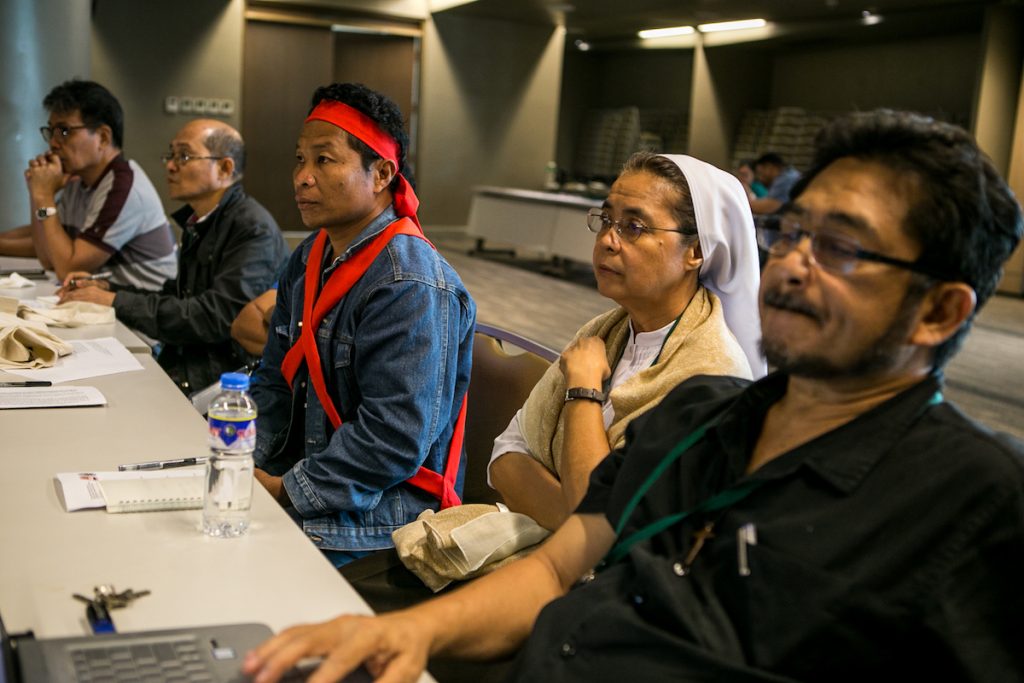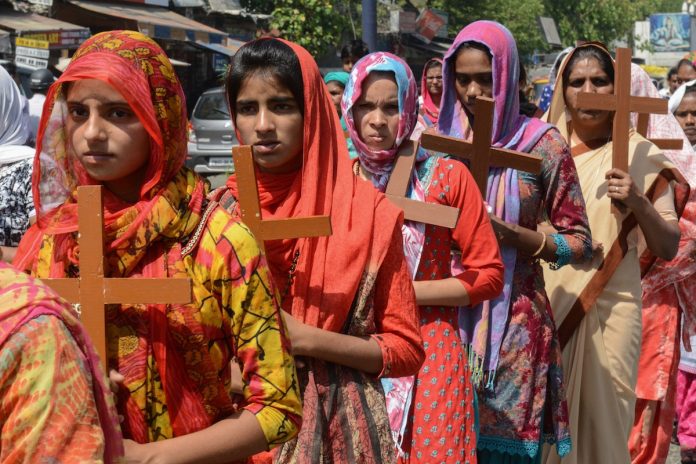Pope Francis is calling on the Catholic Church to participate in a preparation for the Synod of Bishops in October 2023, and the topic is on the process itself of SYNODALITY.
He will launch it in Rome for the universal Church on October 10. Then the bishops will also launch it in the local Churches all over the world on October 17. He wants to promote within the Church the spirit of “Walking Together on the Way” (which is the literal meaning of SYN-HODOS in Greek).
Basically, the pope wants us to learn to treat not just every fellow Roman Catholic, but also every fellow Christian, if possible every fellow human being as a companion in our common journey through life. For this to be realized, he promotes within the Church a greater COMMUNION, PARTICIPATION and MISSION—the three key words in this Synod.
In doing this, Pope Francis is consciously advocating for greater inclusivity rather than exclusivity in the Church. He encourages us to explore possible areas in which we can collaborate, build partnerships, and work together first, among ourselves Catholics, but also with other Christian Churches in the spirit of ecumenism and other religions in the spirit of inter-religious dialogue, as well as with civil society and government agencies, if it is for the common good. He invites us to rise above our differences by trying to find various avenues for unity.
We may not share the same faith, but we share in the same humanity anyway and live on the same planet, our common home. We can share in a common aspiration to live in a world or a society that is more peaceful, and more just, or to work for a more sustainable and ecologically sound environment. After all, we do not have a monopoly of the values of justice, charity, compassion and care. We also do not have a monopoly of the aspirations for the upliftment of the poor and the disadvantaged in society.
In the first reading, the same Spirit that was bestowed on the seventy elders also came to rest on two other men, Eldad and Medad, who were in the list, but “were not in the gathering.” Apparently, they had been “left in the camp.” The author does not even explain why they were unable to join the gathering and needed to stay in the camp. He simply points out that they also received the spirit anyway and started prophesying like the others. When the young Joshua asks Moses to exclude them, Moses refuses to do so.
He says, “Would that all the people of the Lord were prophets! Would that the Lord might bestow his Spirit on them all.”

If in the Book of Numbers it is the young Joshua who intervenes, in the Gospel (Mark 9) it is also the young John. He also wants to prevent those who were exorcising in the name of Jesus but did not belong to their group. Like Moses, Jesus also resists the suggestion of the young disciple, by pointing out that “Anyone who was not against them was with them.”
Honestly, I think of the pope’s call for Synodality as an invitation for us Catholics to take our “catholicity” more seriously. In my younger days, I remember old Catholics calling themselves “Catolicos cerrados.” It was supposed to be an expression for families whose members have remained loyal to Catholicism. But God forbid if it becomes synonymous with “Sarado ang utak.”
Catholicity is really about greater inclusivity. We cannot call ourselves “Catholic” if we are unable to see goodness at work not just among ourselves but also outside our own ranks and groups. If we go by the principle that “where there is love, there is God,” then we should be ready to see God at work in all people who express genuine care, concern and love, which we have no monopoly of.
Following St. Paul’s description of the Church as an organic unity of parts of the same body, we can take Jesus’ shocking words in the Gospel about cutting off parts of the body as full of sarcasm. Can you just keep cutting off parts of your body that supposedly cause you to sin without hurting or causing harm on the whole body? To exclude others is to diminish ourselves!
Remember how disappointed Paul was when he learned that the Corinthian community had become very divided and factionalized, they started excluding one another? Paul had to remind them that the variety of charisms in the community was no reason to be in conflict with each other. Remember how on many occasions in the past, Christians have excommunicated one another?
Paul promoted a greater communion within the Church by inviting the members to acknowledge the Same Spirit at work in them. 1 Cor 12:4-7, “There are different kinds of spiritual gifts but the same Spirit; there are different forms of service but the same Lord; there are different workings but the same God who produces all of them in everyone. To each individual the manifestation of the Spirit is given for some benefit.”
He also advises the Corinthians to aim for the greater gifts, which he identifies as FAITH, HOPE and LOVE. And so he admonishes the Ephesians to live in a manner worthy of the call that they have received, asking them “with all humility, gentleness, and patience,” to bear with one another through love, “striving to preserve the unity of the spirit through the bond of peace: one body and one Spirit, as you were also called to the one hope of your call; one Lord, one faith, one baptism; one God and Father of all, who is over all and through all and in all.”
Homily of Bishop Pablo Virgilio David on the 26th Sunday in Ordinary Time, National Seafarers’ Sunday









